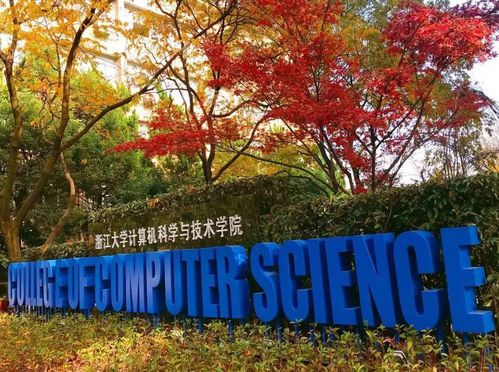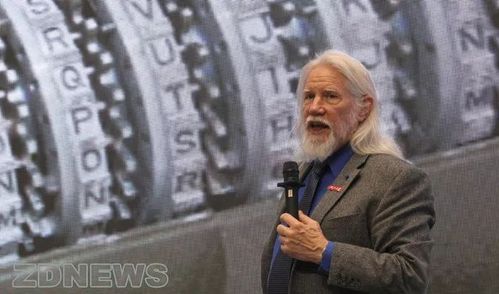Recently, the Ministry of Education announced the 2018 annual university undergraduate filing and review results. An undergraduate major in artificial intelligence has been added to Zhejiang University. The major will begin enrolling students this year and will also set up a Turing class at the Chu Kochen Honors College.
Next, let us follow Professor Prof. Chen Wei, the Vice Dean of the School of Computer Science and Technology of Zhejiang University, and learn more this program.
Artificial Intelligence Program
The goal of the artificial intelligence program of the School of Computer Science of Zhejiang University is to train new artificial intelligence talents who can quickly learn the fundamental theory of artificial intelligence, use artificial intelligence frontier technology to solve practical problems, establish new boundaries and develop global competitiveness.
Artificial intelligence and Zhejiang University go back a long way. In 1978, Zhejiang University enrolled the first cohort of graduate students in the field of artificial intelligence research and began research in this direction. On July 30th, 1982, the Artificial Intelligence Laboratory of Zhejiang University was established. In 1987, the Artificial Intelligence Laboratory was upgraded to the Institute of Artificial Intelligence. After decades of development, Zhejiang University has made remarkable achievements in the research of artificial intelligence (such as cross-media intelligence, big data intelligence, cultural relics restoration and protection, brain-computer interface, augmented reality, etc.), and accumulated a group of experienced teachers, providing a solid base for the development of artificial intelligence. In 2017, the State Council issued the “New Generation Artificial Intelligence Development Plan”, and the Ministry of Education issued the “Innovative Action Plan for Artificial Intelligence in Colleges and Universities”. Academician Pan Yunhe of Zhejiang University were among the leaders, and many professors from Zhejiang participated in the formulation of these programs.
The advantage of Zhejiang University is very apparent, but it never had an undergraduate major in artificial intelligence. At present, it can be said that the establishment is right on time. Prof. Chen Wei said that first-class disciplines can actively promote the cultivation of top-tier talents.
On the basis of learning fundamental and core courses, students can selectively learn intelligent decision-making and module courses in four directions to meet various social demands: intelligent decision-making and robotics, statistical machine learning, intelligent perception and language, and visual interaction and design. At the same time, the courses are divided into five categories: fundamental course, core artificial intelligence, intelligent perception, intelligent system, and intelligent design. Prof. Chen Wei stated that Zhejiang University has unique advantages in design and visual computing. It is hoped that these cross-integration courses will be set up in the talent training process so that students not only master the basic skills, but also build a firm foundation for future research.

Photo: School of Computer Science and Technology, Zhejiang University
Since 2010, the School of Computer Science and Technology of Zhejiang University has been offering an artificial intelligence elective course for undergraduates. It has carried out in-depth exploration and practice in the curriculum of artificial intelligence, teaching materials and experimental exploration, accumulating rich teaching experience and feedback. At the same time, it has achieved fruitful results in the development of artificial intelligence related courses, especially in undergraduate courses such as machine learning, data mining, natural language processing, robot foundation, computer vision, etc., providing rich teaching experience for the comprehensive development of the artificial intelligence program.
Currently, the School of Computer Science and Technology plans to set up an artificial intelligence department. The teams involved in the development are all young teachers with outstand research capabilities. It can be said that we are truly bringing cutting-edge research into the classroom. Prof. Chen Wei said that the school will publish three textbooks on artificial intelligencein 2019. Not only that, the artificial intelligence major will also set up expert committees composed of senior education experts from universities at home and abroad andcarry out in-depth cooperation with research institutes such as Zhijiang Laboratory, Microsoft Research Asia and Alibaba.
As a newly-represented school of artificial intelligence, the School of Computer Science and Technology of Zhejiang University has five first-level disciplines, of which the artificial intelligence discipline was newly established in 2018. The computer science and software engineering disciplines were rated A+ in the fourth round of subject evaluation by the Ministry of Education.
Zhejiang University Turing Class
Zhejiang University will also open a Turing class this year, led byChu Kochen Honors College and the School of Computer Science and Technology.
According to Prof. Chen Wei, the Turing class will have distinctive characteristics, namely, comprehensive fundamental strengthening, all-round scientific research training, full-time instructor guidance, global resource and professional training, all aimed at cultivating excellent fundamental computer science talents. Students enrolled in the Zhejiang University Turing class can identify majors in computer science and technology, artificial intelligenceand information security. In order to select and train undergraduates with special potential and exceptional excellence, the Turing class will provide an academic development mentor after their admission and a professional research instructor after they pick their major. The instructor team includes multiple academicians and a Turing Award winner. For the computer science andartificial intelligence majors, the school currently has three academicians and a full-time Turing Award winner in information security.

Photo: In July 2018, Turing Award winner Professor Whitfield Diffie joined Zhejiang University full time.
The school will equip the Turing class with the best teachers, and most of the core professional courses will be taught separately. From the beginning of the school, each student can choose an academic instructor from the college's preferred instructor library. At the same time, teachers and research leaders from top foreign universities will be hired to teach individual classes to Turing students at Zhejiang University. At present, the school has set up a Turing class expert committee composed of top domestic teaching and educating experts to provide decision-making suggestions for training programs, process management and training paths.
In the four-year program, the curriculum system will feature a wide range of courses, small-class teaching with first-class teachers, a complete research and training system, high-level instructors, exchange visits to world-class universities, and high-level practical internships in the industry. All these resources jointly create a training path for top-notch innovative talents.
It is particularly worth mentioning that in order to comprehensively improve the international academic vision of top talents, the Turing class has established a multi-faceted and multi-level international academic exchange platform to provide students with collaborative research and internship opportunities to top international academic institutions. The introduction of international teachers to participate in curriculum design, teaching and research training in the UK, to promote students to adapt to the international teaching model and cultivate students' international thinking.
“Each Turing class student will be funded by the school and will go to domestic and foreign universities and research institutes for more than 3 months of research practice. Currently, the school has established connection with renowned scholars at MIT, Stanford, Carnegie Mellon, Berkeley, Oxford, National University of Singapore, Hong Kong University of Science and Technology, and well-known research institutions such as Microsoft Research Asia and Baidu Research Institute to provide students with overseas experience. Prof. Chen Wei said: “the construction of the Turing class is a long-term process that requires continuous investment of the school. It also requires guidance and assistance from the society.”






